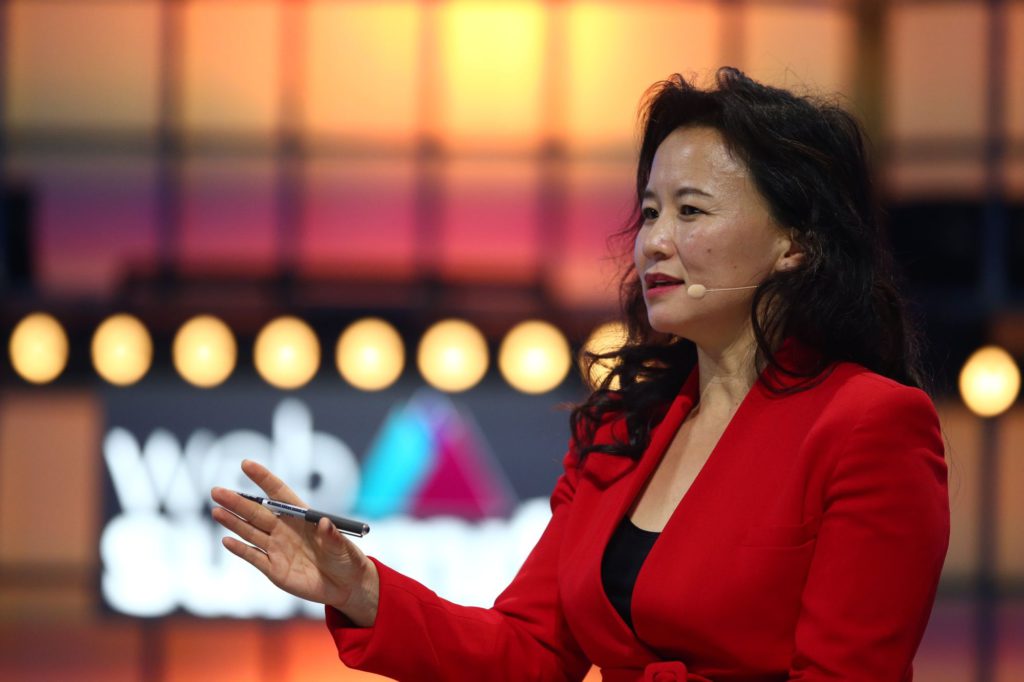(Bloomberg) — Australia’s top diplomat in China called the decision to bar him from the espionage trial of a television anchor “deeply concerning,” a development that strains already tense ties between the nations.
Graham Fletcher said an official who turned him away from Cheng Lei’s hearing on Thursday morning told him the decision was due to China’s laws on national security proceedings, though “our consular agreement says we ought to be able to attend trials of any kind.”
“We can have no confidence in the validity of a process which is conducted in secret,” Fletcher said. “Nevertheless, we will continue to advocate strongly for Ms. Cheng Lei’s rights and interests.”
Chinese Foreign Ministry spokesman Wang Wenbin said later at a regular press briefing in Beijing that not holding an open trial because it involved state secrets was “lawful and legitimate.” “We urge Australia to respect China’s judicial sovereignty and not to interfere in Chinese judicial organs’ handling of cases in any form,” he said.
The court deferred issuing a verdict at the end of proceedings, Australian Foreign Minister Marise Payne said in an emailed statement, adding that the government in Canberra “has never been provided with details of the charges.”
Authorities checked journalists’ credentials outside Beijing No. 2 People’s Intermediate Court, where the Chinese-born Australian who most recently worked for state broadcaster CGTN and was once a CNBC correspondent went on trial. She has been detained since 2020 and was formally arrested last year. China’s Foreign Ministry said earlier that authorities had determined she supplied “state secrets overseas,” without elaborating. The charges Cheng faces can be punished by up to life in prison.
Cheng was detained after Australian Prime Minister Scott Morrison’s government called for an independent probe into the origins of the coronavirus, a move China saw as backing former U.S. President Donald Trump’s efforts to blame it for the pandemic. That sparked fears that Beijing had targeted the mother of two to exert pressure on Canberra, which China is embroiled with in a tit-for-tat tariff war.
Representatives from Australian and U.S. media groups reiterated their calls for Cheng’s release Wednesday. “We have urged the Chinese government to show compassion by allowing her to return to Australia and we condemn her arbitrary detention and the secretive trial process she has endured,” said Karen Percy, of the Media, Entertainment & Arts Alliance of Australia.
Westerners Grow Wary of China Travel Over Threat of Detention
Cheng is among several foreign nationals from countries with fraught political ties with Beijing who have been detained on spy charges in recent years. Chinese-born Australian writer Yang Hengjun was tried last May on espionage charges, with diplomats barred from the courtroom because the case involved state secrets. A verdict in that case still hasn’t been announced.
The one-day trials of Canadians Michael Kovrig and Michael Spavor were also held in private last year for the same reason. The pair were released after Huawei Technologies Co. executive Meng Wanzhou reached a deal to end U.S. extradition proceedings against her in Canada.
Cheng had hosted CGTN business shows since 2012 and was well known among Beijing’s small circle of diplomats and journalists. She had previously served as China correspondent for CNBC after graduating from the University of Queensland with a bachelor’s degree in commerce and serving as an accountant at Cadbury Schweppes, according to her LinkedIn profile.
Australia’s Payne said in a statement Saturday that Canberra had raised serious concerns about Cheng’s welfare and conditions of detention “regularly” with China. “We expect basic standards of justice, procedural fairness and humane treatment to be met, in accordance with international norms,” Payne said.
Wang, the Foreign Ministry spokesman, told a news briefing Monday that Cheng’s rights would be protected and referred reporters to the agency’s past statements on the case.
Haze Fan, a member of Bloomberg News’s Beijing bureau, was detained by the Beijing National Security Bureau in December 2020, with authorities saying at the time that she was suspected of national security law violations. She has not been seen since then.
(Updates with comments from Marise Payne in fifth paragraph.)
More stories like this are available on bloomberg.com
©2022 Bloomberg L.P.











